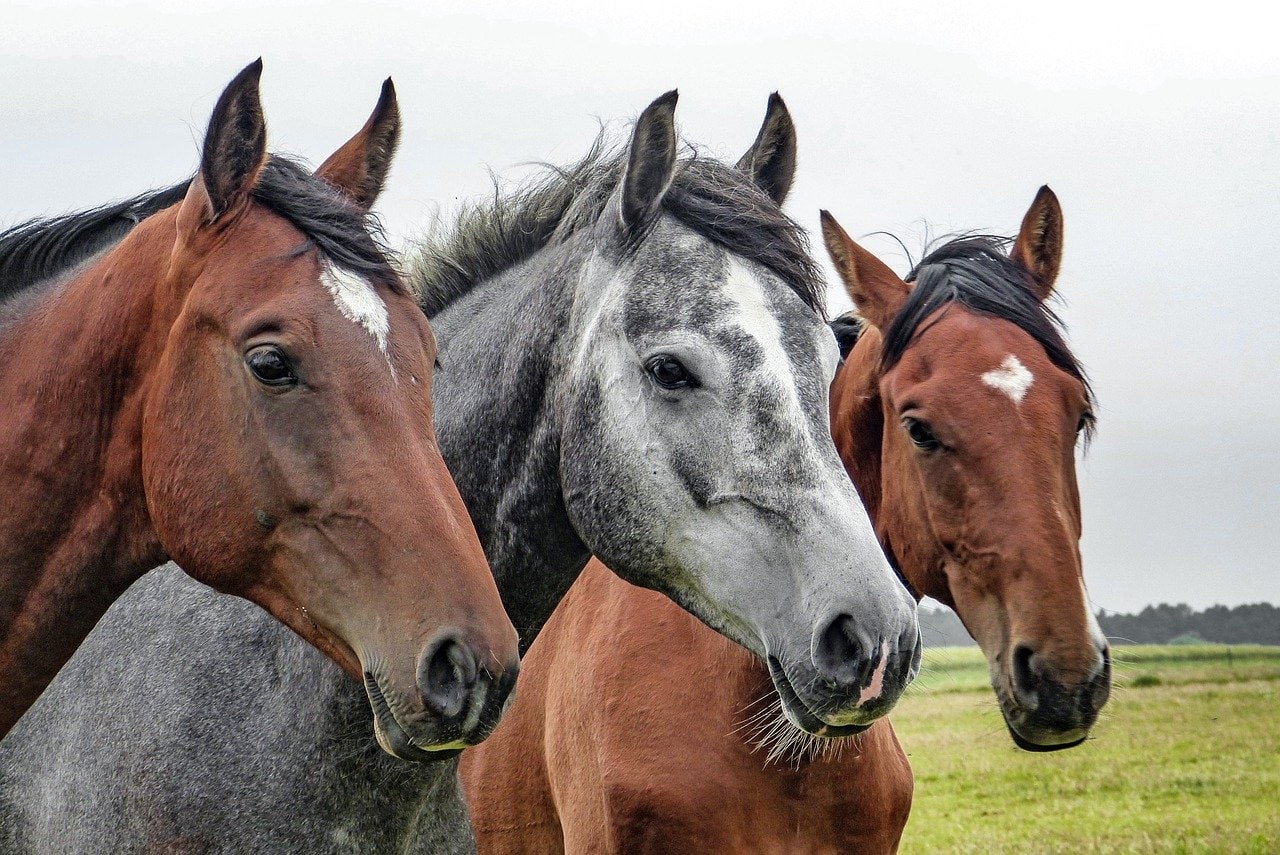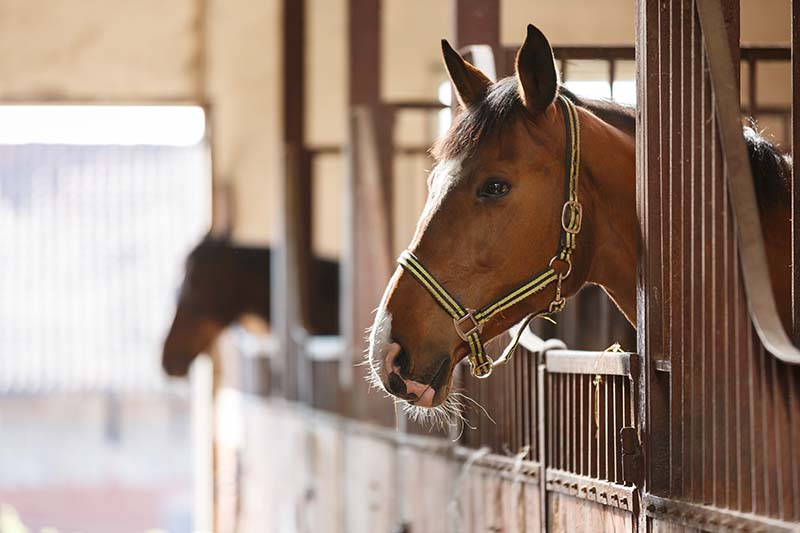
Through written and spoken language, it’s easy for humans to express themselves. This makes it simple to convey problems and needs to others. But horses don’t have the advantage of understanding language. They can still communicate, but in a much different way than we do.
However, we must learn to decode a horse’s manner of communication if we want to understand it. This will make it easier to train the horse as well as keep them healthy and happy. Instead of words, we’ll have to learn to understand a horse’s sounds and body language if we want to know what they’re trying to communicate.
What Does it Mean When My Horse…
You’ve likely heard your horse making a variety of different sounds from snorting to neighing and more. You might not have realized that these sounds were actually signs of particular things. Each sound or action your horse makes has a specific meaning, which can give you an insight into how your horse is feeling.
Snorts
A horse will generally snort with its head held high and mouth shut, exhaling forcefully through the nostrils. This creates a loud flutter sound that lasts for about one second and can be heard at distances of up to 30 feet
What Does it Mean?
When your horse snorts, it means that they’ve noticed something that could potentially be dangerous, and they’re considering how to proceed. You’ll usually notice that your horse is staring at a particular object following a snort.
Possible Responses
If your horse relaxes or starts to ignore the object in question, they’ve concluded that it’s not a danger.
When your horse becomes tense or shies away from the object, they’ve decided that it’s dangerous and their best course of action is to leave.
Blows
When your horse blows, it’s very similar to a snort, minus the fluttering sound. They’re still exhaling through the nose with the mouth shut, though less forcefully. It’s most often used when two horses meet each other, and you can tell the horses’ reactions by what happens after the blow.
What Does it Mean?
Two horses will usually blow when they meet each other for the first time. They’ll also blow if they’re curious about something new and unknown.
See: Normal Horse Health Indicators
Possible Responses
After two horses meet for the first time, if they continue to blow and start to nuzzle each other or interact in other gentle ways, then they’ve determined each other to be friends. If they start to stamp their feet, nip at each other, or make other more assertive noises.
If the horse is blowing at an unknown thing they’re curious about, they’ll usually tense up and shy away if they feel that it’s dangerous after a closer examination. Should they determine it’s ok, they’ll most often relax and begin ignoring the object.
Nickers
A horse nicker comes from their vocal cords. It’s a vibrating sound made with the mouth closed that’s generally directed at another horse or a human.
What Does it Mean?
A quiet nicker while the horse moves towards the person or horse they’re nickering at is a simple hello, indicating that the horse is happy to see them.
Stallions will nicker louder and a bit more aggressively, accompanied by a head shake, when they’re trying to attract a mare for mating.
Mares will nicker at their foals to tell them to come closer. It’s much quieter and softer than even the quiet nicker that horses use for hello.
Neighs or Whinnies
The longest and loudest of all the noises horses make, a neigh or whinny is a combination of both a squeal and a nicker. It starts as a squeal but ends in a nicker.
What Does it Mean?
Many people mistakenly think this is a sound of fear, but it’s actually just a sign that the horse is looking to see if the others are still around. They’ll usually make this sound while looking around for other people or horses with their head held high.
Possible Responses
If another horse hears the neigh, they’ll return in kind, informing the first horse that they’re not alone.
Squeals
Squeals can be short or long, loud or quiet. It’s made with the mouth closed and can be heard from quite a distance when done loudly.
What Does it Mean?
A squeal is a sound that indicates the horse doesn’t want to do what’s being asked of them. It’s also a bit of a warning not to keep the pushing horse.
Screams
Domesticated horses rarely scream. It’s a sound used only when horses are fighting, so it’s generally only heard in the wild.
What Does it Mean?
This is an aggressive call indicating that the horse wants to fight and intends to cause harm to the horse it’s screaming at.
Possible Responses
If the other horse turns to hide and runs with its tail low, it’s meant as a surrender. But if the other horse responds in kind with aggressive behavior and a scream, then a fight is about to begin between the two horses.
Last Thoughts
There are many ways that horses communicate, even though they don’t have the luxury of written and spoken language. Hopefully, now you can translate some of their sounds and understand a bit of what is going on inside your horse’s mind.
Featured image credit: Lucky Business, Shutterstock










